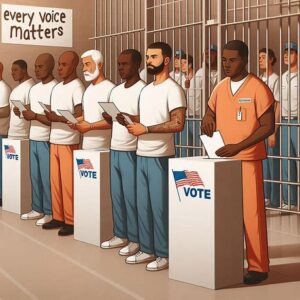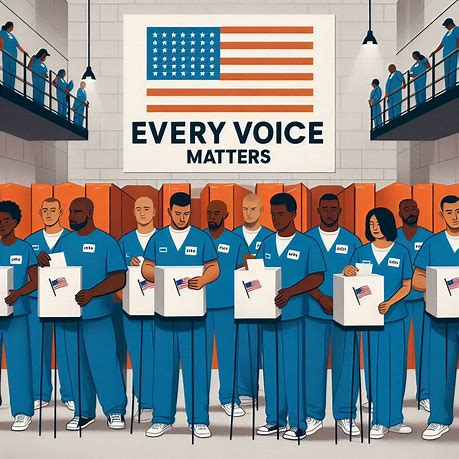Colorado Leads the Way with In-Person Voting for Incarcerated Individuals
In a groundbreaking move, Colorado has become the first state to introduce a statewide program allowing eligible voters who are incarcerated to participate in in-person voting. This significant step, aimed at simplifying the voting process for individuals awaiting trial or serving time for misdemeanors, marks a crucial advancement in electoral inclusivity and prisoner rights.
Governor Jared Polis signed the bill into law, reflecting a commitment to ensuring that all citizens, including those in correctional facilities, have the opportunity to exercise their fundamental right to vote. The program’s implementation is expected to have a positive impact on voter turnout and civic engagement among incarcerated populations.

The initiative is a response to the recognition that individuals in correctional facilities, despite their circumstances, retain their citizenship rights, including the right to vote. By facilitating in-person voting, Colorado is not only upholding these rights but also acknowledging the importance of incarcerated individuals’ voices in shaping policies that affect them and their communities.
The program’s design includes provisions to ensure security and integrity, such as verifying voter eligibility and preventing duplicate voting. Additionally, it provides educational resources to help incarcerated individuals understand the voting process and make informed decisions.
This historic move by Colorado sets a precedent for other states to follow, demonstrating that it is possible to create more inclusive electoral systems that embrace all eligible voters, regardless of their current circumstances. It underscores the importance of recognizing and respecting the voting rights of all citizens, regardless of their incarceration status.
As the program rolls out, it will be essential to monitor its impact closely and address any challenges that may arise. By doing so, Colorado can refine its approach and serve as a model for other states seeking to enhance voting access for incarcerated individuals.
Voting rights for incarcerated individuals are a complex and evolving issue that intersects with broader conversations about democracy, justice, and equality. Historically, the United States has had a patchwork of laws regarding voting rights for people who are incarcerated. Some states have laws that allow certain incarcerated individuals to vote, while others disenfranchise all incarcerated individuals, sometimes even after they have completed their sentences.
The rationale behind disenfranchisement often includes ideas about punishment, civic responsibility, and the integrity of the voting process. However, critics argue that denying the right to vote to incarcerated individuals undermines democratic principles and perpetuates inequalities, particularly among marginalized communities.
Proponents of voting rights for incarcerated individuals argue that civic participation is a fundamental right that should not be stripped away, regardless of someone’s legal status. They contend that allowing incarcerated individuals to vote can help them maintain a sense of connection to their communities and can be an important part of their rehabilitation and reintegration into society.
Efforts to expand voting rights for incarcerated individuals, such as Colorado’s in-person voting program, are part of a broader movement to reexamine and reform criminal justice policies. These efforts aim to create a more inclusive and just society where everyone has a voice in shaping their future.
Colorado’s introduction of in-person voting for incarcerated individuals represents a significant step forward in promoting democratic principles and ensuring that all citizens have a voice in the electoral process. It highlights the importance of inclusivity and underscores the need to remove barriers to voting for marginalized populations, ultimately strengthening our democracy.


Add your first comment to this post